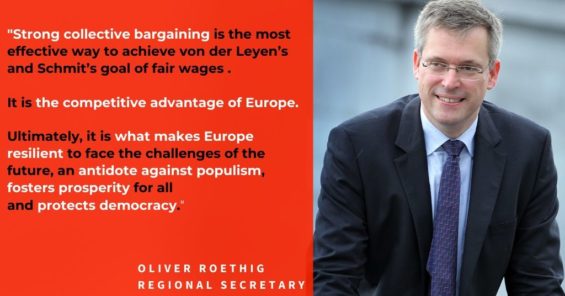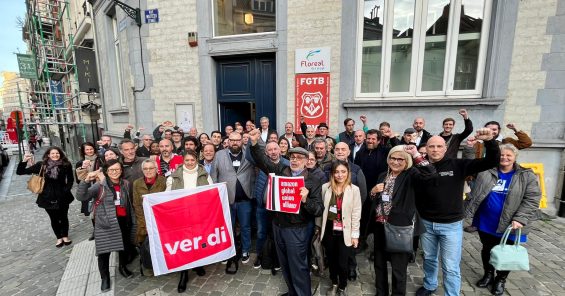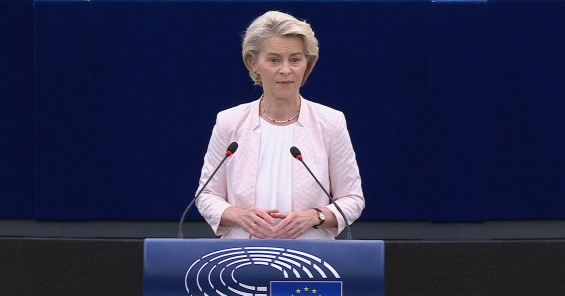President von der Leyen’s and Commissioner Schmit’s position on a fair and decent wage for all and the importance of collective bargaining is spot on. The consultation document by the Commission, however, is disappointing and in danger of missing the point.
Von der Leyen’s and Schmit’s goal for this initiative is ensuring that every worker earns not less than a fair minimum wage allowing for a decent living wherever they work. UNI Europa shares this ambition. And by this, we mean every worker, whether employed or self-employed.
Statutory minimum wages are a limited tool for ensuring fair wages. At the very least, they should be set at a level above the divide between fair wages and unfair ones.
We cannot accept ambiguous wording that allows statutory minimum wages being pushed downwards based on factors like the economic environment and possible effects on employment and competitiveness. We neither want to end up with the EU meddling in well-functioning collective bargaining systems.
What we need is a pro-active approach that builds on von der Leyen’s and Schmit’s belief in the value of collective bargaining and in the role of trade unions and employers as those that know their sector and their region best.
For UNI Europa, the most effective way to achieve the goal of a fair wage for every worker is sectoral collective bargaining based on a real balance of power between trade unions and employers. What governments and the EU should thus prioritise is concrete action to ensure an appropriate framework to this end in each and every member state.
To accomplish von der Leyen’s and Schmit’s ambition, UNI Europa sees an urgent need for the Commission to bring forward two initiatives:
- A revision of the public procurement directive to establish that public contracts require contractors to recognise unions and be party to a collective agreement.
- EU legislation that guarantees the right for unions to access the workplace, including digital access, to be able to meet with the workforce for purposes of representation, organising and collective bargaining along with protection for workers from union busting actions.
A narrow legal instrument on a minimum wage is not enough. The EU needs to be more ambitious. At the foundation of Europe’s social market model lies sectoral collective bargaining. For too long the EU has undermined and side-lined it. Today, we need to promote collective bargaining vigorously – Commission, EP, governments, civil society, social partners, all of us. The OECD came out in favour with its report “Negotiating our way up”. We need the EU to do so, too – and with concrete action. Strong collective bargaining is the competitive advantage of Europe. It makes Europe resilient to face the challenges of the future, is an antidote against populism, fosters prosperity for all and protects democracy.


